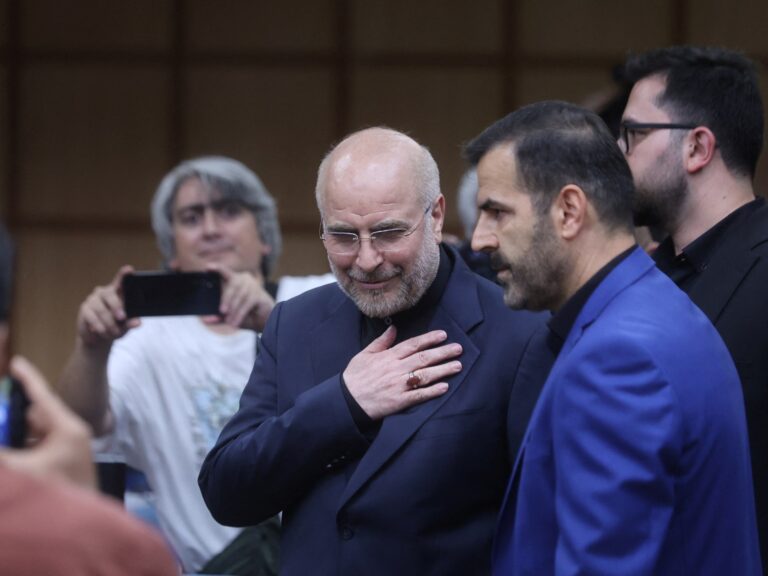Parliament Speaker Mohammed Bagher Ghalibaf and five other conservative lawmakers were approved to run in a snap vote on June 28.
Tehran, Iran – Following the death of President Ebrahim Raisi in a helicopter crash, six people, including Parliament Speaker Mohamed Bagher Ghalibaf, have been approved to run in the presidential elections scheduled for June 28.
The Guardian Council, the constitutional review body, approved the candidacy of former nuclear negotiator Saeed Jalili and Tehran Mayor Alireza Zakhani, but 74 other candidates did not run, making this another election with significant disqualification of candidates.
Mr Ghalibaf, 62, is a former commander in the Iranian Revolutionary Guard Corps (IRGC) air force, who served as speaker of parliament for four years and was mayor of Tehran from 2005 to 2017, and police chief before that. He ran for president in 2005, 2013 and 2017, but withdrew his vote from Mr Raisi.
Jalili, who is Supreme Leader Ayatollah Ali Khamenei’s direct representative on the Supreme National Security Council, withdrew from the 2021 election in favor of Raisi, who won virtually unopposed.
The most prominent of those disqualified were populist former president Mahmoud Ahmadinejad and moderate candidate and former three-time parliament speaker Ali Larijani, who were ineligible to even run in the 2021 elections.

Iran had planned to hold presidential elections in 2025, but the elections were brought forward after Raisi died in a helicopter crash in northern Iran on May 19. Raisi, 63, was expected to become the next president and was seen as the favorite to succeed Iran’s 85-year-old supreme leader.
Seven others were killed in the crash, including Foreign Minister Hossein Amirabdullahian, but the military said in a preliminary report last month that it was not the result of foul play.
Zakhani, who dropped out of the 2021 election to back Raisi and become Tehran’s mayor, said in a post on X after his election on Sunday that he wanted to “continue the path” of the late president.
Topping the list of six approved candidates are parliament member Masoud Pezeshkian, former interior and justice minister Mostafa Pourmohammadi and Amirhossein Ghazizadeh Hashemi, head of the Iranian Martyrs Foundation.
Pezeshkian, 70, a veteran five-term lawmaker and former health minister, is the only candidate representing moderate and reformist factions, which have become severely weakened in Iran’s political landscape.
Eshaq Jahangiri, who served as first vice president under moderate President Hassan Rouhani’s government, was among those disqualified by the Guardian Council, along with former central bank governor Abdolnaser Hemmati, who was allowed to run in the 2021 election and won 2.42 million votes, or 8 percent of the total vote.
The other candidates represent conservative and hard-line political factions that have become increasingly prominent since the unilateral U.S. withdrawal from Iran in 2018 and the collapse of the 2015 nuclear deal between Iran and other countries around the world.
Ghazizadeh was also approved in 2021, receiving 3.45% of the vote, or less than 1 million votes. Raisi won the presidential election with about 18 million votes and 48.8% of the vote.
The nuclear program and Iran’s sanctions-hit economy are expected to be among the issues discussed in five, four-hour debates scheduled to be aired on state television before the election.
Voter turnout in presidential and parliamentary elections has declined steadily since 2020, with turnout in the March 2024 parliamentary elections falling to 41%, the lowest since the 1979 Islamic Revolution.

